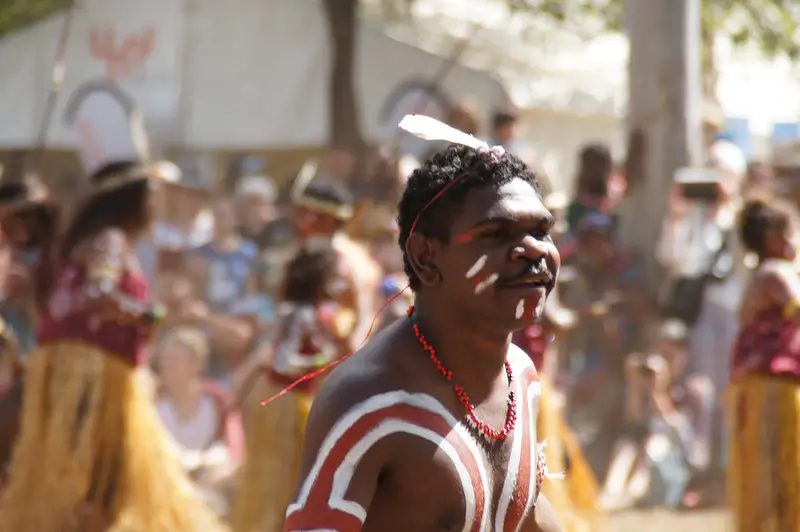The term Aboriginal is commonly used in Australia to refer specifically to the original inhabitants of the continent. Indigenous is a broader term that encompasses not only Australia’s Aboriginal people but also indigenous populations from around the world.
Aboriginal Vs. Indigenous

The word “Aboriginal” is commonly used in Australia and Canada to refer to the original inhabitants of those regions. It recognizes the unique cultural heritage, traditions, and connection to the land held by these communities. In Australia, for example, Aboriginal people trace their lineage back thousands of years before European colonization.
On the other hand, “Indigenous” is a broader term that encompasses various native peoples around the world. Indigenous populations can be found in different countries such as Mexico (Mayans), New Zealand (Māori), or Alaska (Inuit). This term highlights their shared experiences of colonization, marginalization, and efforts towards self-determination.
Aboriginal refers specifically to certain regions like Australia and Canada; Indigenous has a global scope. As such, using these terms correctly helps us acknowledge specific histories while also recognizing common struggles faced by indigenous communities worldwide.
| Aboriginal | Indigenous | |
|---|---|---|
| Definition | Refers to the original inhabitants of a specific region or country. | Refers to the native peoples or cultures within a particular region or country. |
| Usage | Primarily used in specific regions like Australia and Canada to refer to the indigenous peoples. | More widely used globally to refer to native peoples across different regions and countries. |
| Historical Context | Historically used in colonization contexts and government policies in Australia and Canada. | Emphasizes the broader concept of indigenous peoples beyond specific colonial contexts. |
| Cultural Identity | May be specific to certain regions or countries, such as Aboriginal Australians or Aboriginal Canadians. | Can encompass a wider range of indigenous cultures and communities globally. |
| Legal Terminology | Used in specific legal and constitutional contexts in Australia, such as the Aboriginal and Torres Strait Islander people. | Used in international legal frameworks and conventions, such as the UN Declaration on the Rights of Indigenous Peoples. |
Aboriginal
Definition
The term “Aboriginal” refers to the original inhabitants or indigenous peoples of a specific region or country. It is often used to describe the earliest known inhabitants of a particular land, who have a historical and cultural connection to that place.
Usage
The term “Aboriginal” is primarily used in specific regions such as Australia and Canada. In Australia, it commonly refers to the indigenous peoples of the Australian continent, including Aboriginal Australians and Torres Strait Islander peoples. In Canada, it is used to refer to the First Nations, Inuit, and Métis peoples.
Origin
The term “Aboriginal” originates from the Latin word “ab origine,” which means “from the beginning” or “from the origin.” It was adopted by European colonizers to differentiate the indigenous peoples from the European settlers who arrived later.
It’s important to note that the term “Aboriginal” is specific to certain regions and should not be assumed as a universal term for indigenous peoples globally. Different countries and regions may have their own terms to refer to their native or indigenous populations. Understanding and respecting the preferences and specific contexts of indigenous communities is crucial in discussions related to their identity and rights.
Indigenous
Definition
The term “Indigenous” refers to native peoples or cultures who are the original inhabitants of a specific region or country. It emphasizes their historical and ongoing presence, connection, and relationship with the land, culture, and traditions.
Usage
The term “Indigenous” is used globally to describe native peoples across different regions and countries. It is a broader term that encompasses various indigenous communities and cultures worldwide, highlighting their shared experiences of colonization, displacement, and the preservation of their unique identities.
Origin
The term “Indigenous” originated from the Latin word “indigena,” meaning “native” or “born in a place.” It emerged as a more inclusive and respectful term to acknowledge and recognize the diverse native populations and their collective struggles against colonization and assimilation.
How the terms Aboriginal and Indigenous are used in different contexts
In Australia, for example, the term Aboriginal is commonly used to describe the indigenous people of the continent. It acknowledges their unique cultural heritage and connection to the land. On the other hand, in Canada, both Aboriginal and Indigenous are used as umbrella terms encompassing various First Nations groups, Métis peoples, and Inuit communities.
The choice of terminology often reflects historical and political factors within each country or region. For instance, in Australia, there has been a long-standing movement for self-determination among Aboriginal communities. As a result, many prefer being referred to specifically as “Aboriginal” rather than using more general terms like “Indigenous.”
In contrast, in North America and parts of Latin America where colonization by European powers had significant impacts on indigenous populations – including forced relocation and cultural assimilation – using broader terms like “Indigenous” helps highlight shared experiences across diverse groups.
Image Credits
Featured Image By – Malcolm Williams on Flickr
Image 1 By – Malcolm Williams on Flickr








